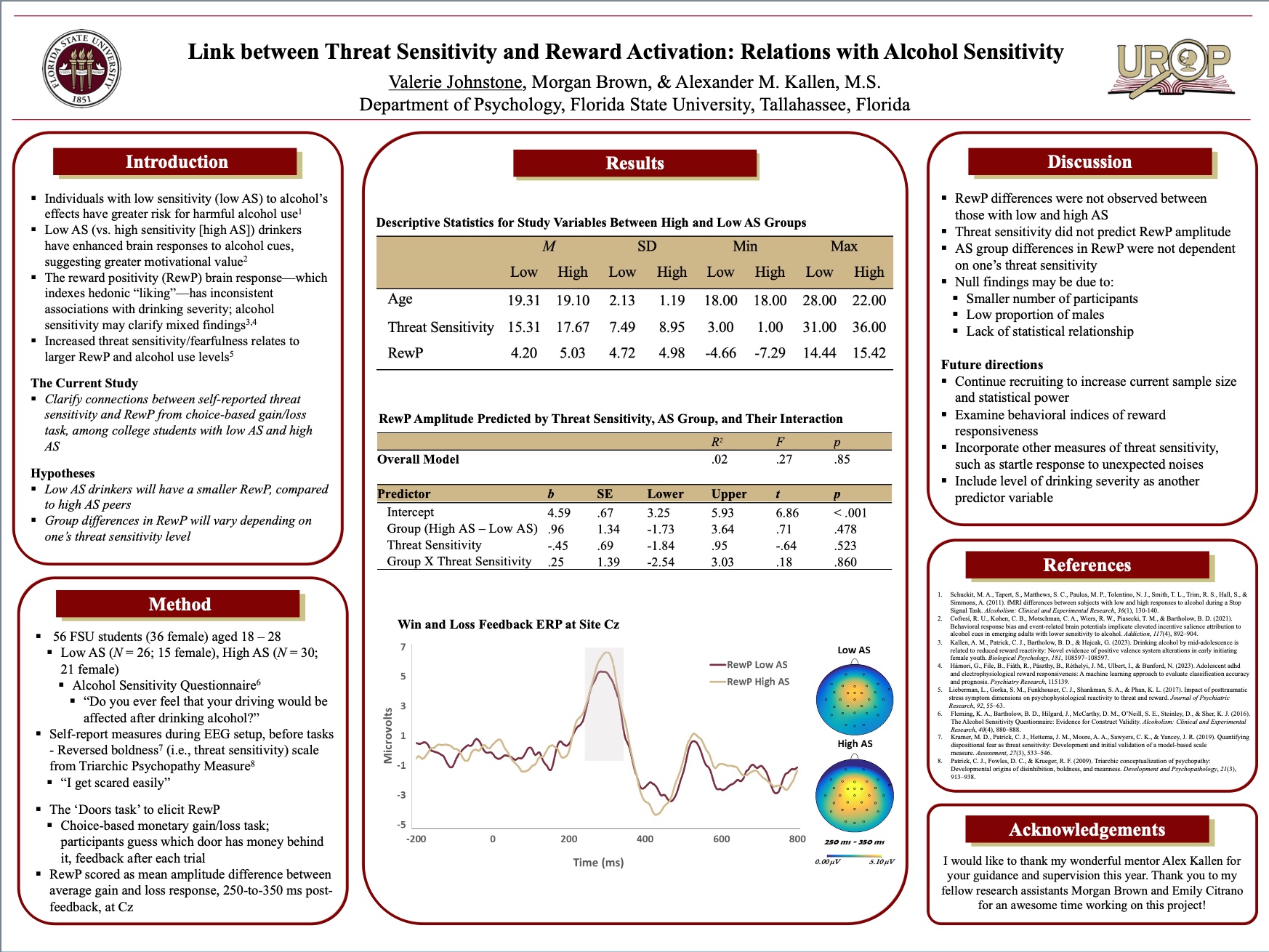Research Symposium
24th annual Undergraduate Research Symposium, April 3, 2024
Valerie Johnstone Poster Session 5: 4:00 pm - 5:00 pm/59
BIO
I am a psychology and Japanese major from Tallahassee. I am planning on pursuing a PhD in clinical psychology and am interested in research related to anxiety and obsessive-compulsive disorders. I am currently working in the Patrick lab in the psychology department where I assist with EEG research.
Link between Threat Sensitivity and Reward Activation: Relations with Alcohol Sensitivity
Authors: Valerie Johnstone, Alexander KallenStudent Major: Psychology and Japanese
Mentor: Alexander Kallen
Mentor's Department: Psychology Mentor's College: Arts and Sciences Co-Presenters:
Abstract
Individuals with low sensitivity to alcohol’s effects have greater risk for harmful alcohol use. Low sensitivity to alcohol is also linked with enhanced brain responses to alcohol cues, suggesting increased motivational value of such stimuli. However, the relation between alcohol sensitivity and neural responses to reward feedback, such as the Reward Positivity (RewP), is untested. RewP magnitudes have shown inconsistent associations with drinking severity, and one’s alcohol sensitivity level may clarify these prior mixed findings. Another related factor, variations in threat sensitivity or fearfulness, correlates positively with RewP and alcohol use levels. In the current study, we aim to clarify the connections between self-reported threat sensitivity and RewP elicited during a simple gambling task, among college students with low (N = 26) versus high (N = 30) alcohol sensitivity. Analyses showed no significant group differences in low and high alcohol sensitive individuals in relation to RewP amplitudes, nor did threat sensitivity moderate the RewP difference. However, a sample size of only 56 individuals may not have been large enough to accurately display the effect of these variables on reward reactivity. Additionally, the current lack of findings implies that other risk factors may alter the connection between alcohol and monetary reward sensitivity. Future studies should aim to expand this sample size as well as incorporate additional measures of symptoms that increase an individual’s susceptibility to harmful alcohol use. Researchers should persist in examining the connections between alcohol and reward sensitivity, alongside its implications for substance use disorders.
Keywords: "Alcohol" "Reward" "Threat Sensitivity"

